How the Academy Awards got its start—plus Oscars’ big flops
Well before the grandiloquently dubbed Academy of Motion Picture Arts and Sciences hosted its inaugural award ceremony at the Hollywood Roosevelt Hotel in Los Angeles on May 16, 1929, the movie industry was already up to it eyeballs in stink.
Star Fatty Arbuckle had been acquitted for rape and murder. Director William Desmond Taylor was a cold case, whacked in his Westlake bungalow. Heartthrob Wallace Reid’s morphine addiction had become his final act.
Worst of all, girl-next-door Mary Pickford had left her champagne-colored curls on a chop shop floor.
Had the whole world gone flapper? As far as Mr. and Mrs. America were concerned, Hollyweird was now vice city.
For the studio brass — considered suspiciously Semitic by those who filled movie palace seats — mounting scandal brought the existential threat of censorship ever nearer.
States were pushing complex and inconsistent decency laws that could nix a film for so much as hinting that baby sis wasn’t dropped off by the stork.
But Louis B. Mayer — head of Metro-Goldwyn-Mayer or “the Jewish Hitler,” depending on who you asked — had a plan.
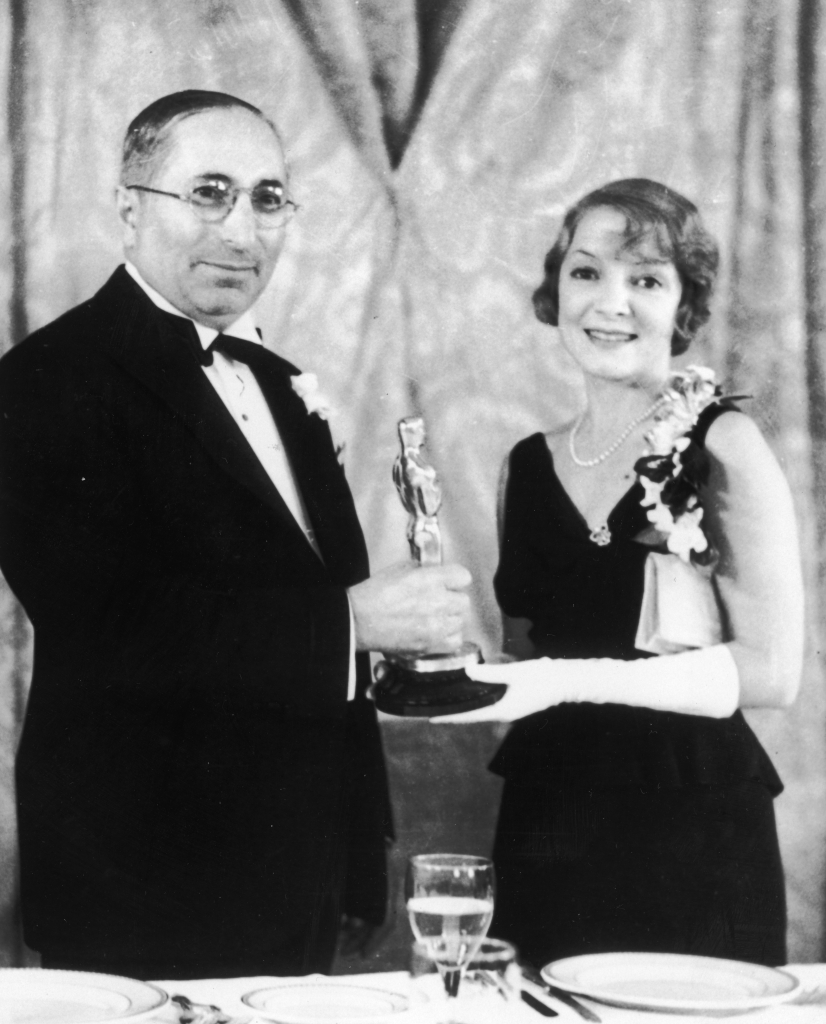
“When the very wheels of industry paused as a result of the World War, our industry became a great institution, a great big industry here in California,” Mayer said. “And yet we have no effective organization.”
He would give Hollywood just that a La-La Land League of Nations, charged with elevating the art of cinema. It would more often be a cynical tool for keeping friends close and enemies — like the “Bolshevik” guilds and the puritanical Hays Office — closer.
But Mayer, as much pimp as producer, understood that controlling his adversaries required a carrot, not just a firm hand.
A bronze statuette named Oscar would do.
“I found that the best way to handle [artists] was to hang medals all over them,” he boasted. “If I got them cups and awards they’d kill themselves to produce what I wanted. That’s why the Academy Award was created.”
In his new book, “Oscar Wars” (HarperCollins), Michael Schulman reports on nearly a century of history and ignominy: from SAG boycotts, blacklists, bankruptcy and corruption to streakers, sex pests, racism and high embarrassment — not to mention certain slap-happy actors.
“What are the Academy Awards, anyway?” he writes. “They’re an industry party—like a convention of landscapers, but with better outfits. They’re the closest thing America has to royalty … They’re a marketing ploy propping up a multibillion-dollar business … They’re an orgy of self-congratulation by rich and famous people who think too highly of themselves …
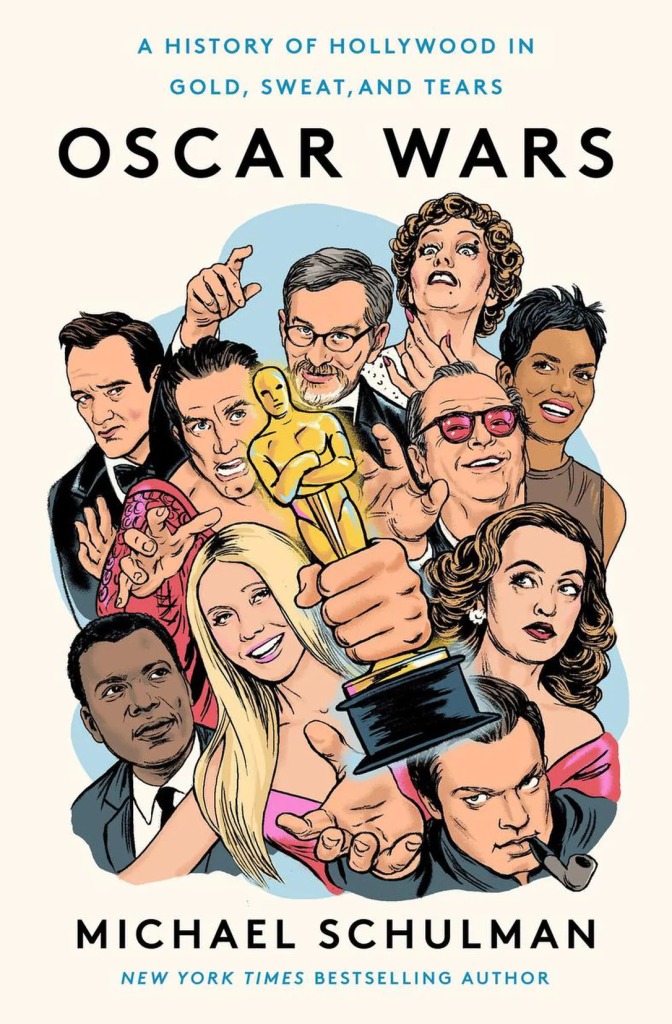
“If there’s a common thread running through the decades of Oscar wars, it’s power: who has it, who’s straining to keep it, who’s invading the golden citadel to snatch it.”
Just in time for the 2023 Academy Awards — airing Sunday, March 12, at 8 p.m. on ABC —here is a look at the skeletons deep inside Oscars’ closet.
How those darn accountants got involved
Three days before the 8th Academy Awards in 1936 , the talent guilds instructed their members, including primo players like Gary Cooper, to stay home.
The Academy had been losing the long war against labor for years. Membership was down from 600 to 40, and the Academy was on the verge of bankruptcy.
To stay alive, the Academy needed someone suspicious of labor but idealistic enough to project its imagined virtues — someone like Frank “Mr. Deeds” Capra.
Fresh off his 1934 Best Director win for “It Happened One Night,” Capra seemed like the perfect Academy president. At first he was.
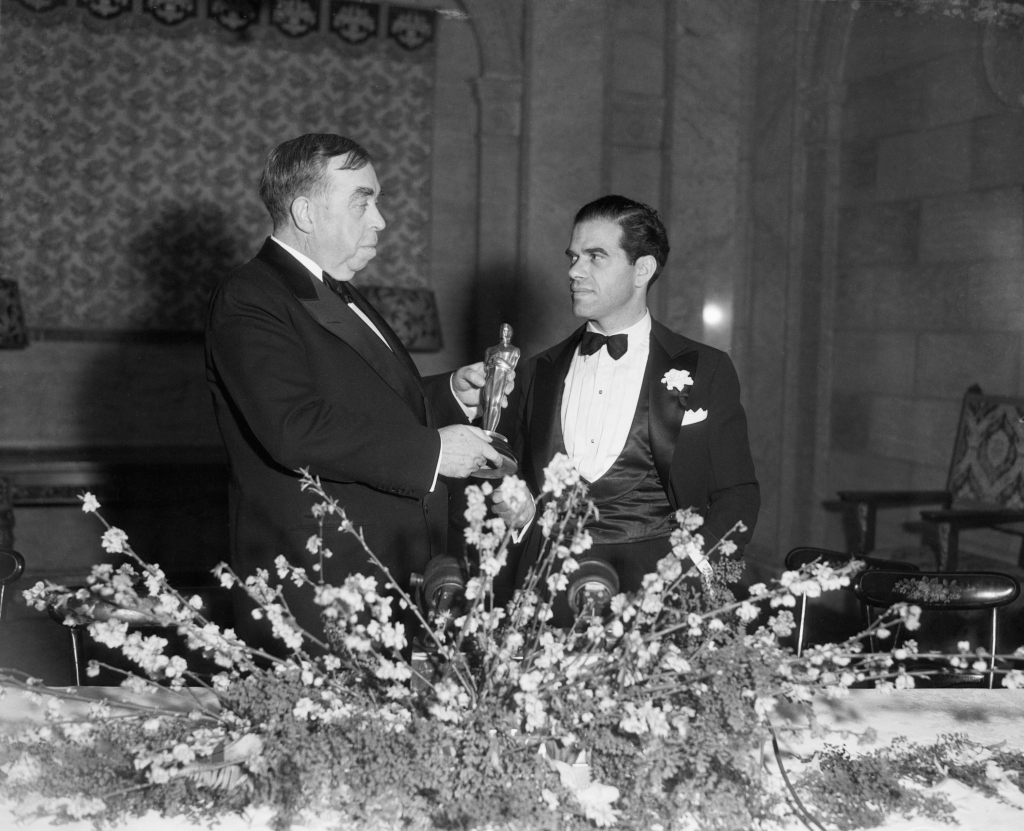
To fill the Biltmore ballroom for the awards show, Capra came up with a plan: He would tap the accounting firm of Price Waterhouse [now PricewaterhouseCoopers] to perform an impartial tally of the ballot.
The Academy would also present an honorary award to blockbuster “Birth of Nation” director D. W. Griffith, who no one in the industry had seen in years.
“We used him,” Capra said. “But we had to have a hell of a drawing card to keep the Academy alive, to keep the lights burning.”
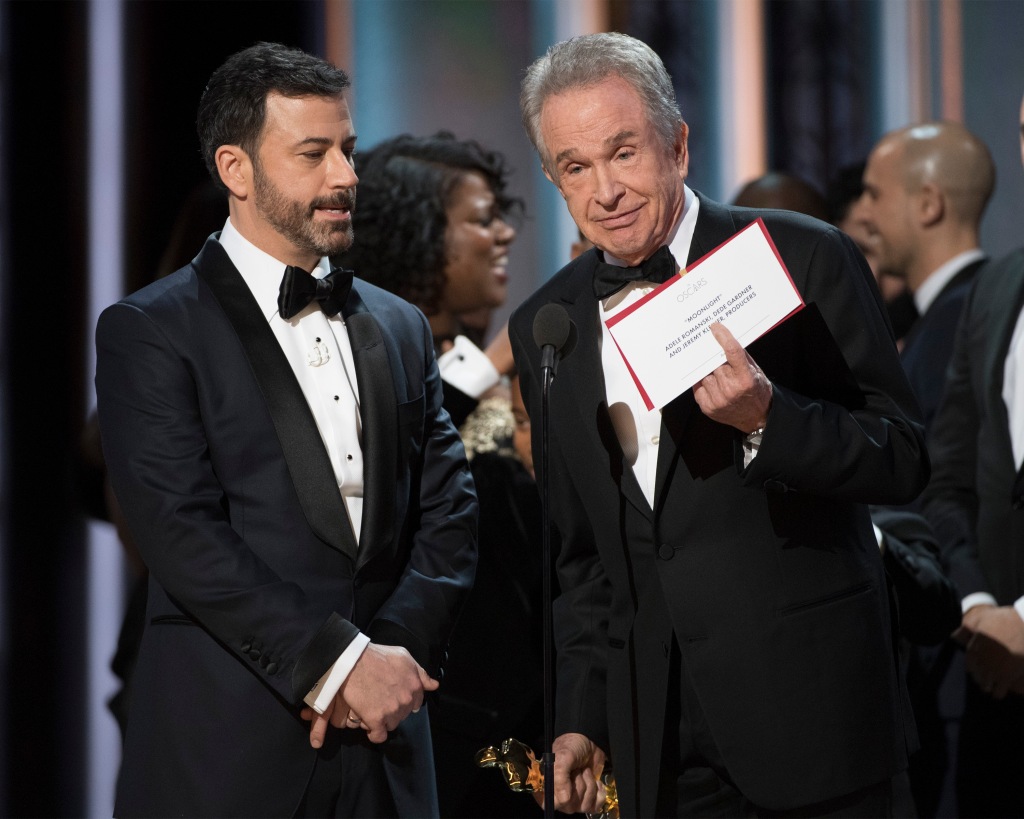
It worked. All 1,200-seats were filled, even if some high-profile faces were absent — Variety reported that tickets were “liberally distributed to secretaries.”
In 2017, the accountants at PWC contributed to a major envelope screw-up that led to “La La Land” initially being crowned Best Picture — before rightful winner “Moonlight” was announced.
Bette Davis, booted
When the Japanese attacked Pearl Harbor on December 7, 1941, Bette Davis was just a month into her job as the first female president of the Academy.
The actress had been faced with every conceivable indignity — from being being pushed into an abortion to prostrating herself before studio head Jack Warner for any role that wasn’t simply a “sweet, drab sister” — the industry could throw at her as a rising star. Now, thanks to three best actress wins, she was in charge.
A progressive move from the America’s sleaziest city? Think again.
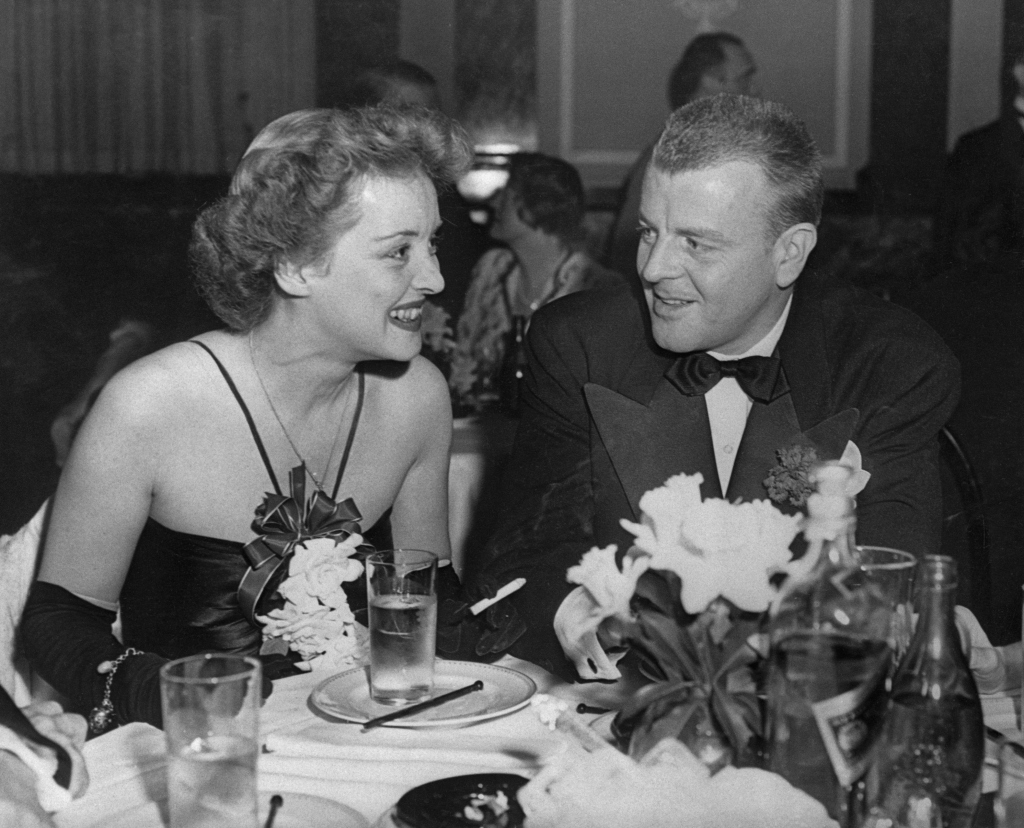
“I was not supposed to preside intelligently,” Davis wrote in her memoir, “The Lonely Life.” “Rather like an heiress at her deceased father’s board of directors’ meeting, I felt quite capable of holding the gavel.”
Her plans for the Academy Awards’ first wartime ceremony — de-glitz the event, move it from the Biltmore Hotel to a theater, donate the ticket proceeds to war relief and hand out wooden Oscars — horrified the Board of Governors.
After just two months in office, Davis was out and her predecessor, producer Walter Wanger (“The Long Voyage Home”), was back in.
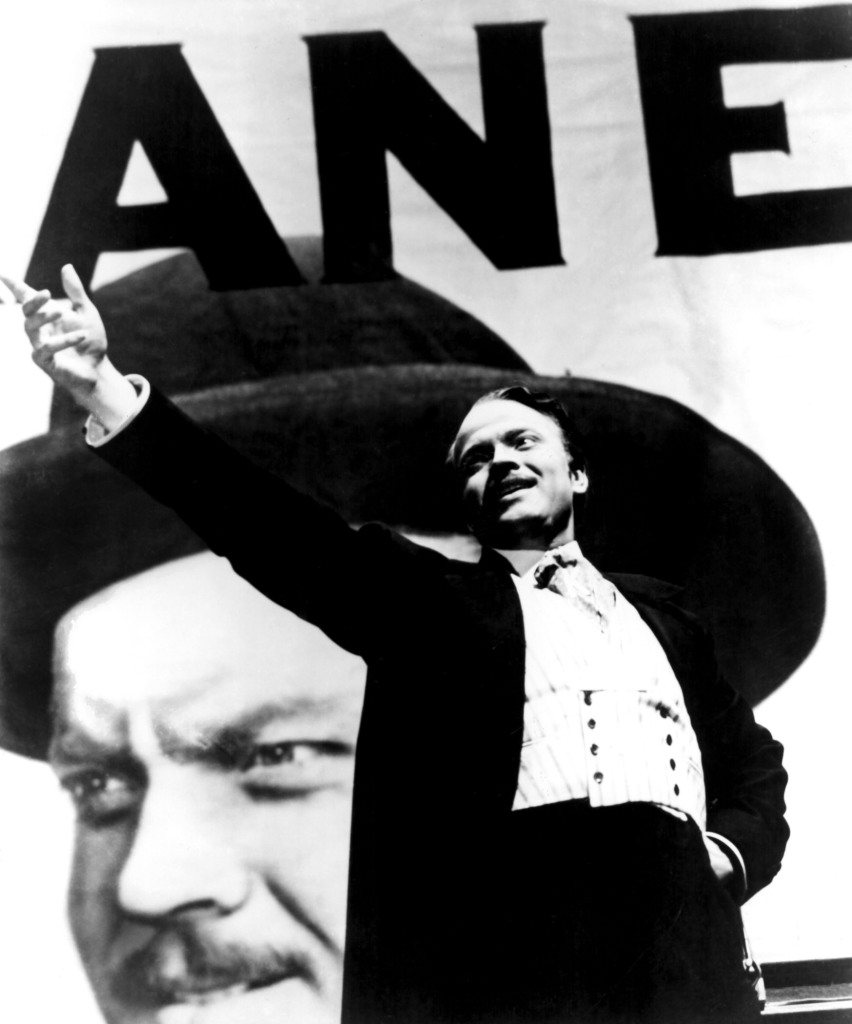
Despite cancellation rumors, the 14th Academy Awards were held on February 26, 1942, at the Biltmore Hotel in Los Angeles, with no dancing and no black-tie unless it was a military uniform.
But another Oscar tradition was also preserved: getting it all wrong. The 1942 show would be forever remembered as the year Orson Welles’ masterpiece “Citizen Kane” got snubbed.
An Orwellian Oscars
Best Original Story at the 29th Academy Awards in 1957 went to Robert Reich for a drama called “The Brave One” — but he didn’t take the stage to accept his Oscar.
In fact, no one had any idea who he was.
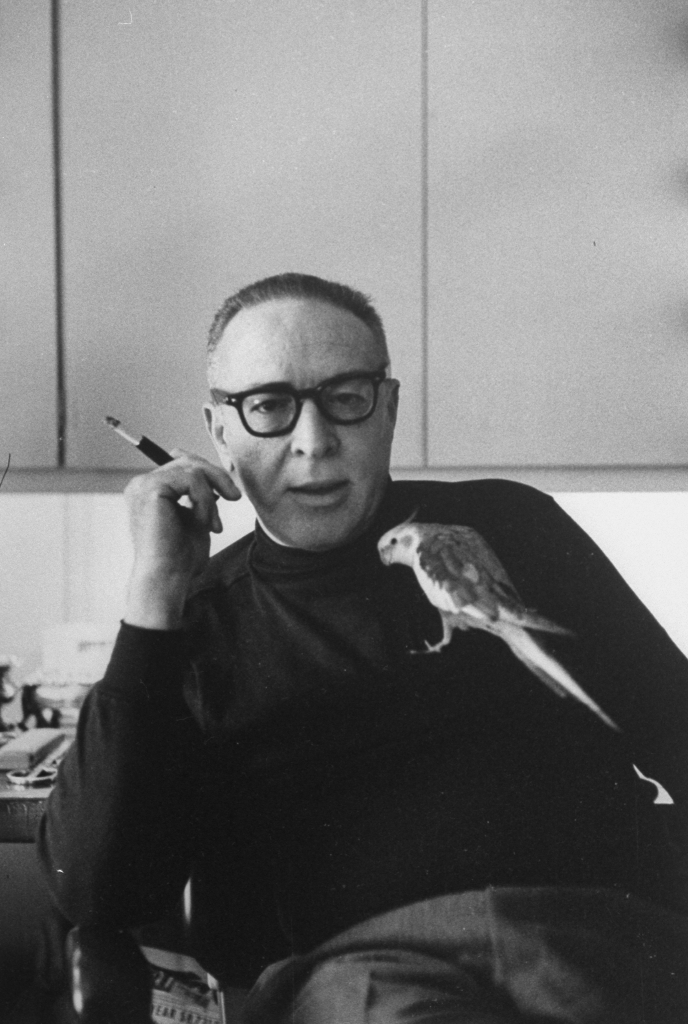
That’s because Hollywood was eating its own faster than faster J Edgar Hoover could tap phones. The House Committee on Un-American Activities had ensured that anyone who even thought pink would be seeing black.
Just a month before the 1957 award ceremony, the Academy’s Board of Governors voted to add a new clause to its bylaws, making any accused Communist who refused to publicly renounce the accusation ineligible for an Academy Award.
The group used its power almost immediately, disqualifying the nomination of blacklisted writer Michael Wilson’s screenplay for “Friendly Persuasion,” which had been released with no writing credit.
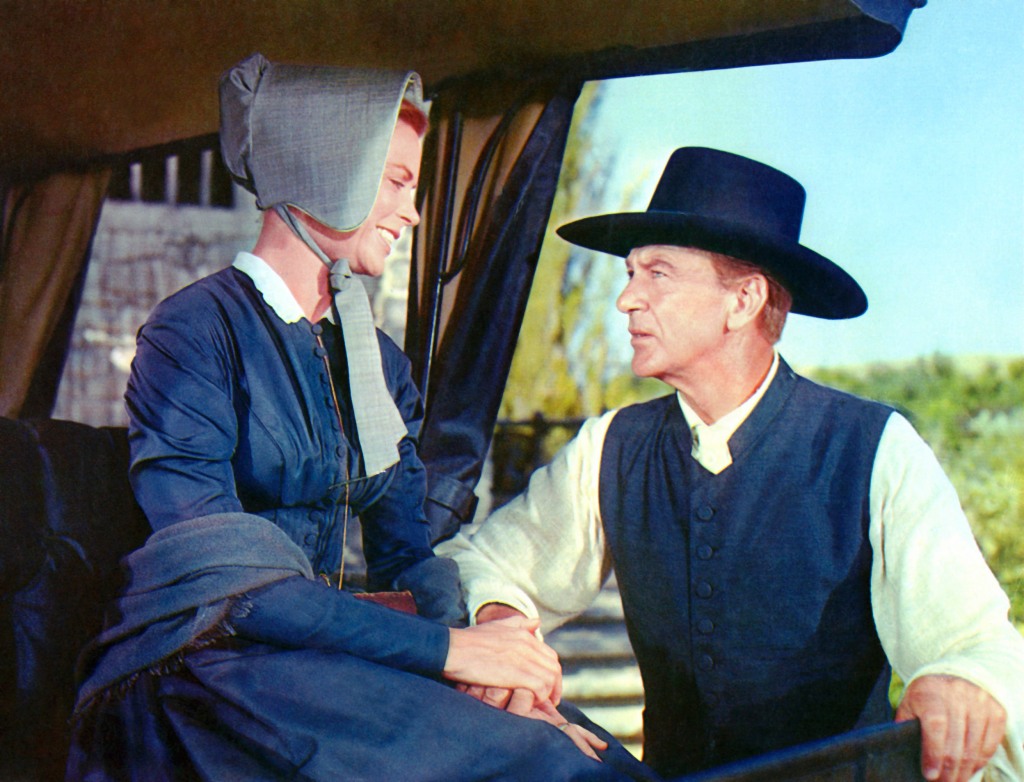
It was the “biggest boo-boo in Academy nomination history,” Variety reported.
Eventually, it became clear that Robert Reich was, in fact, Dalton Trumbo, the ace screenwriter (who went onto write “Spartacus”) and member of the blacklisted “Hollywood Ten.”
After serving time in prison for refusing to testify before Congress, Trumbo was forced to use a front when his 1953 smash hit “Roman Holiday” won Best Story. Now, he was getting his revenge, forcing the Academy to hand out an award to a ghost named Robert.
The Academy would humiliate itself again at the 1958 awards when it was forced to give the Oscar for best screenplay for “Bridge over the River Kwai” to novelist Pierre Boulle — who didn’t speak English, let alone write it.
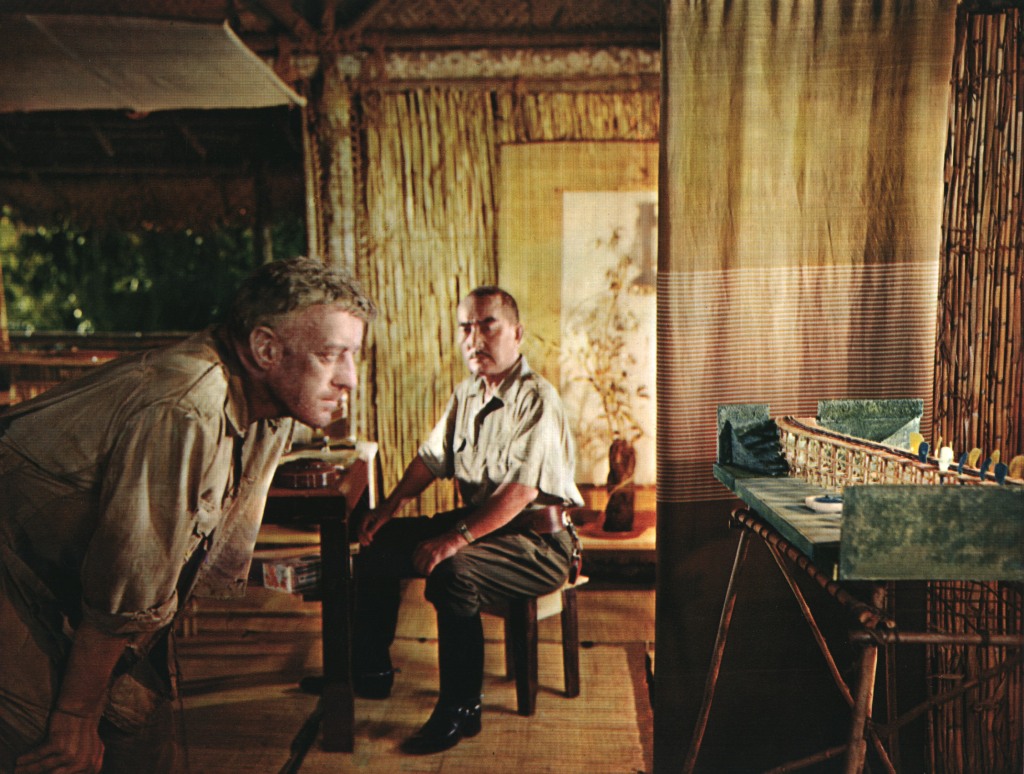
The Academy waited until 1984 to make right and give the award to the true writer: the once-blacklisted Michael Wilson.
The ’89 Flop
By 1989, TV ratings for the Oscars were down and critics had called the previous year’s ceremony “parched, drab and leaden” and “curiously lacked oomph.”
So “Grease” producer Allan Carr — “Hollywood’s glittermeister” and a man known for his curve-concealing caftans and wild partie — was tapped to bring back the va-va-voom.
It was a total disaster.
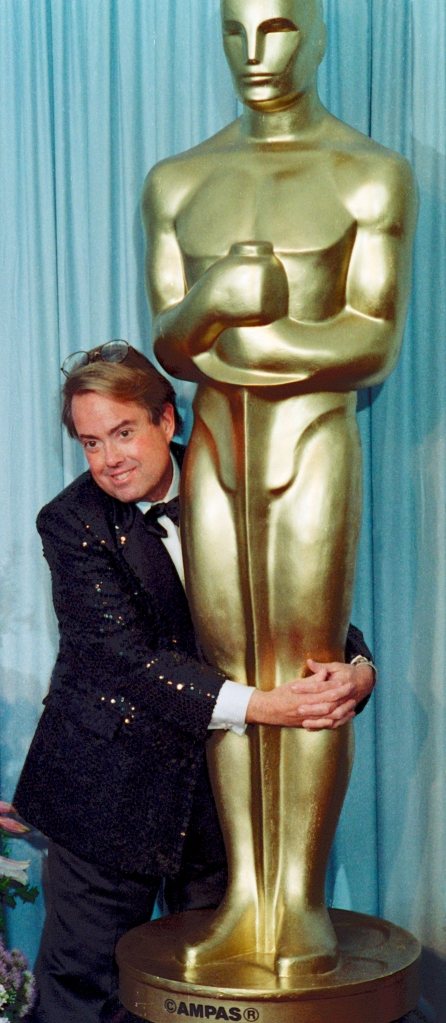
His plan for the Oscars: ditch the host, extend the red carpet so that viewers could drown in gowns, can the Best Original Song performances (they were all “turds”) and replace them with high-camp musical numbers.
For the opening number Eileen Bowman — dressed as Snow White — worked the audience while singing a in cartoon falsetto, to everyone’s discomfort.
Merv Griffin sang “I’ve got a lovely bunch of coconuts” on a set inspired by Miami’s Coconut Grove.
Hollywood “dinosaurs” like Roy Rogers and Vincent Price were paraded through an elaborate dance number.
Then, seemingly out of nowhere, Rob Lowe started singing a parody of “Rolling on the River” with Snow White.
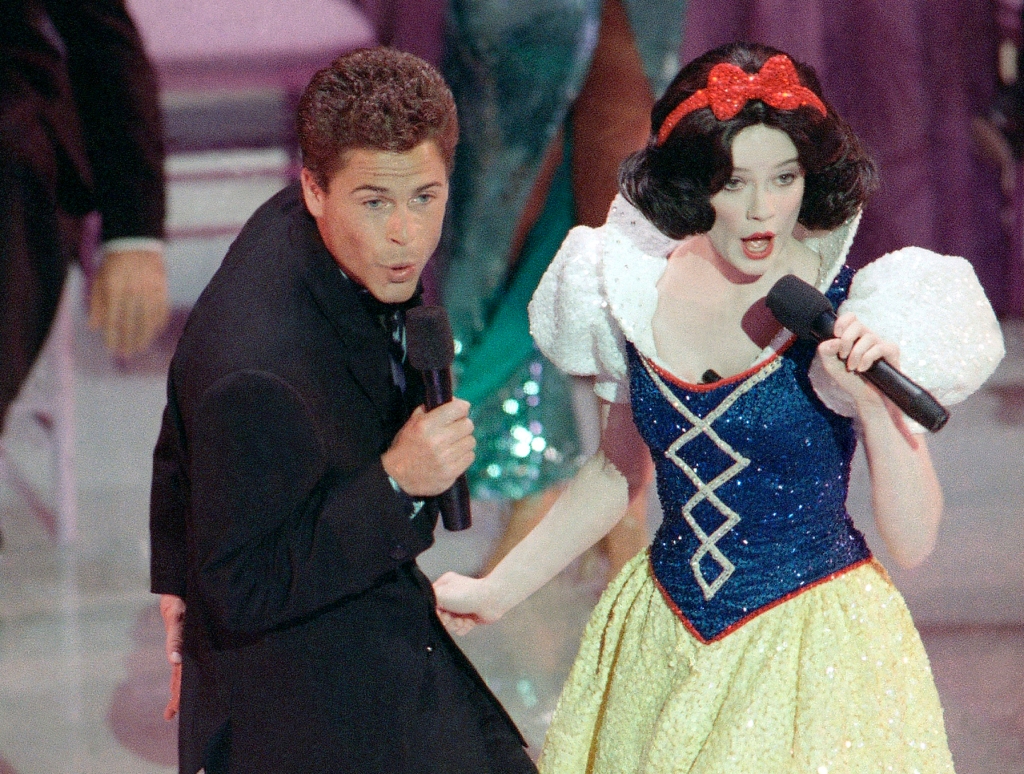
The romp didn’t stop for 11 excruciating minutes.
Lowe recalls looking into the crowd and seeing “Rain Man” director Barry Levinson: “His mouth is agape. He almost looks ashen. He turns to his date, his face a mask of shock and disgust. Even in the middle of singing a duet I can very clearly read his lips as he says, ‘What the f–k is this?’”
The next day’s reviews were vicious.
“A flaming wreck,” deemed the AP.
“Flatulent gas bag,” cried the Sacramento Bee.
It “deserves a permanent place in the annals of Oscar embarrassments,” wrote The New York Times.
Worse still, Carr had never cleared the use of Snow White with Disney, and the embarrassed studio quickly filed trademark infringement lawsuit in US District Court.
A group of Hollywood bigwigs including Gregory Peck wrote a letter to Academy president Richard Kahn calling the show “an embarrassment both to the academy and the entire motion picture industry.”
After that, Carr’s career was toast.
“This was his dream,” his friend Bruce Vilanch, a longtime Oscars-show writer, said. “He wanted to be one of them. He was one of them for a while. And then … he stepped on his c–k.”
Read the full article Here


